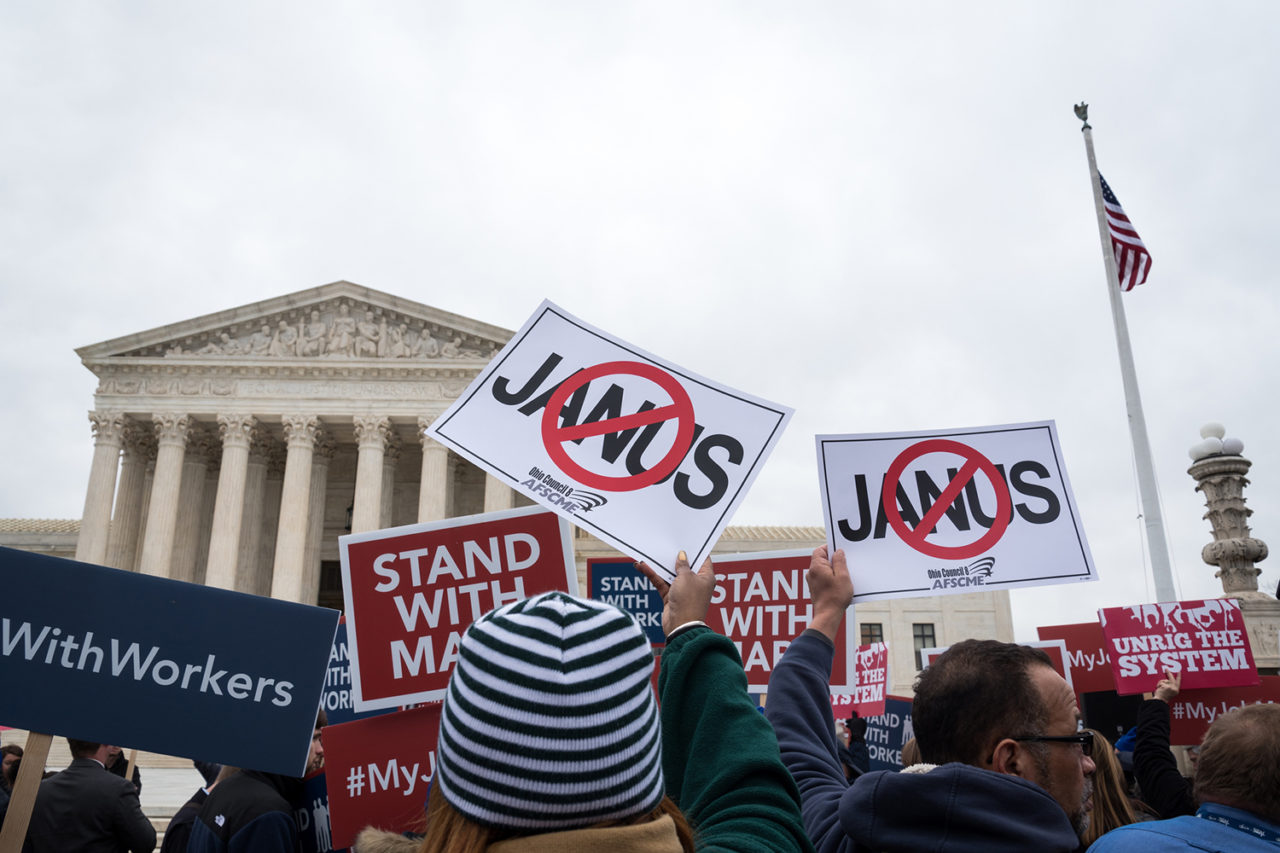by: Adam Roberts
In April, the Policy Pulse covered the increased activity of the Koch Brothers and other wealthy individuals in their attempts to weaken unions and professional associations. From their perspective, the limits that AIA and other groups place on employment, such as licensure, are violations of basic freedoms enshrined in the Constitution.
This battle reached its climax in late June, when the US Supreme Court handed down its decision in Janus v. AFSCME. The case centered around whether or not public sector unions could extract an “agency fee” from non-members when negotiating on their behalf in collective bargaining. In a 5-4 decision, the court ruled that agency fees violate the first amendment by forcing workers to financially support organizations whose positions they may not support. The decision was to the delight of Illinois Governor Bruce Rauner, a wealthy conservative businessman who pushed the case to the Supreme Court.
Meanwhile, public sector unions have expressed grave concerns about their future viability. They are still required to negotiate on behalf of non-members, even if those non-members no longer have to pay for this benefit. With fewer dues, the bargaining power of public sector workers, including countless architects and allied professionals, is expected to weaken.
AIA New York’s President and Executive Director both signed a letter affirming AIA New York’s continued advocacy for its public sector members. The letter can be seen in our news section or on the website here. While AIA New York is barred from advocating for wages in the way unions can, it is still allowed to work on behalf of issues beneficial to the work environments of its public and private sector members.
In Albany, legislators are searching for solutions to this potential crisis. Assembly Member Dick Gottfried, who represents the West Side of Manhattan, has proposed a Janus workaround. His bill would allow public sector unions to receive reimbursements from the state for negotiating on behalf of newly nonpaying non-members.
The seeming rising tide of the Koch Brothers and their allies at the expense of professional associations and unions has repercussions beyond issues like licensure or collective bargaining. Shortly before the Janus decision was handed down, The New York Times ran a story entitled “How the Koch Brothers Are Killing Public Transit Projects Around the Country,” which highlights efforts by the Koch Brothers to successfully defeat mass transit funding proposals. When professional associations and unions have their memberships and revenues lowered, it weakens their ability to organize their members in support of important issues, such as mass transit funding. For all architects, threats to mass transit funding and other aspects of the built environment can severely harm their practice.
Pulse Points:
- The Board of Standards and Appeals ruled that the developers of 200 Amsterdam were not in breach of zoning rules. AIANY President Guy Geier testified in favor of 200 Amsterdam on the grounds of protecting as-of-right zoning and maintaining the validity of NYC Department of Buildings decisions. More on the project can be read here.
- The City Council’s Charter revision commission is taking shape. Most of the commission members are former city council and agency staff, including former NYC Department of City Planning Commissioner Carl Weisbrod. Further information can be found here.








